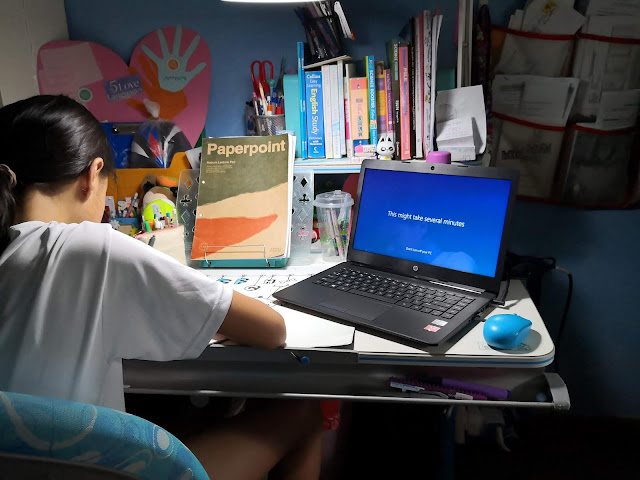Ambition and how it can result in depression
With all the talk about the new PSLE grading system, there's a renewed discussion on the effect of stress amongst young children, in Singapore, and around the world.
Whatever examination or streaming system the authorities devise, because the demand for certain schools outweighs the supply, there will still be a reason for ranking and placements. Hence, students end up having to compete and try harder to do better to secure their desired spots, and that's where stress comes from.
Stress. The need to achieve more (than someone else, or what you previously did).
 |
| It takes a lot more than a few minutes, and I'm not referring to the Windows update. |
I think there's only one way out. No elite schools. No top university courses. No highly sought after top-paying jobs. No free market.
The world won't stop for us or our children - we live in a global society that is fast, goal-driven and brutal. The pandemic has made this even more obvious - there is a clear divide between the haves and have-nots. Your willingness to put in the work and focus to push yourself can make the difference between struggle and success.
Stress can be turned into something better, healthy and manageable - Ambition. This is self-imposed (as opposed to being externally forced) and comes from an inner need to achieve and improve. But this can also lead to depression.
I'm no expert, but I think I can classify ambition into two. Which are:
Absolute Ambition - The need to be better than everyone, regardless of the cost to mental, physical, social health. This kind of drive, often associated with Type-A personalities, can lead to amazing successes, or spectacular failures. This all-or-nothing approach is driven by passion, a need for validation or maybe an inner emptiness that has to be filled by material success, accolades and recognition. However, as you know, there will always be someone better, richer, smarter - and the endless and obsessive quest for excellence might consume everything, leaving no time to enjoy the beauty of life itself. You could end up burning out, giving up completely, thinking that nothing can be attained and the whole project is pointless when in reality if expectations were set realistically, you would realise that there has been progress, but at a slower and perhaps more sustainable level.
Achievable Ambition - If you are familiar with SMART goals, you'll know the A stands for Achievable. Of course, you don't aim for something you can already reach. Imagine you're training to jump and set your goal to touch the top of the door frame, which you can already do on tiptoe. That is definitely something you can achieve. You need to force yourself to go somewhat higher - literally in this case. A 10-20% improvement might be a good idea - something realistic, but high enough to force you to work at it without giving up hope. Set viable timelines too - and be disciplined and mindful enough to monitor yourself. As they say, be better every day - it doesn't matter if it's 1%, 10% or 100% - aim to improve.
You want your children (and yourself) to live a stress-free life - but will that prepare them for a future where they must compete for jobs with people all over the world, as well as AI robots and algorithms designed to literally take work out of the system and reduce the need for human intervention. You want them to be on the correct side of technological progress, yet not get burnt out before they even get there. With a dose of Growth Mindset, teach them how to be ambitious, develop an internal drive to achieve, but combine that with a realistic frame of mind and a healthy perspective on the ups and downs of life.